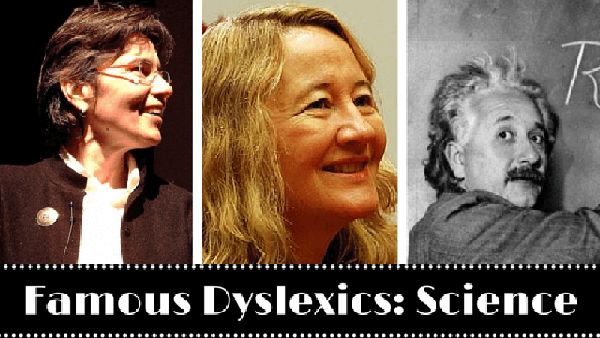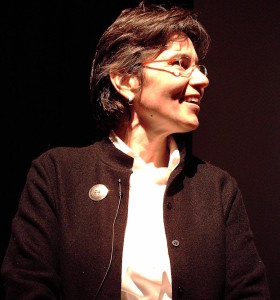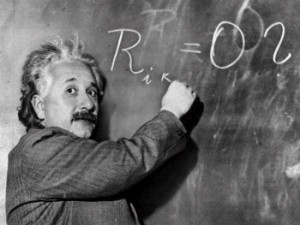Famous Dyslexics: Science
 Dyslexia does not have to limit your accomplishments. Read the stories of three famous dyslexics who thrived in science despite their struggles…
Dyslexia does not have to limit your accomplishments. Read the stories of three famous dyslexics who thrived in science despite their struggles…
Ann Bancroft
“My dyslexia and my challenges through school were the absolute perfect training for an expedition. Expedition people are all about one step in front of the other and not going very fast, just doing the hard work. What better way to get the work ethic than by having a learning difference?”
 Ann Bancroft did not let her struggles with reading and mathematics stop her from becoming the first woman to cross both the North Pole and the South Pole.
Ann Bancroft did not let her struggles with reading and mathematics stop her from becoming the first woman to cross both the North Pole and the South Pole.
From a young age, Ann Bancroft was keenly aware that she thrived in nature, but not the classroom. In order to get by in school, Bancroft managed her troubles in reading, spelling, and mathematics with the help of tutors and her parents. After the successful completion of fourth grade, Bancroft’s family relocated to Kenya. Bancroft remembers these years to be the most influential in her life. Her experiences in the natural world allowed her to be more expressive and confident in taking on challenges.
When she returned to the States two years later, she enrolled in the seventh grade at an academically prestigious school. In an effort to move forward in school, Bancroft and her family ignored her learning troubles and pressed on. Despite working tirelessly to improve her academics, she never saw the results she hoped for. By the recommendation of teachers, Bancroft was tested and diagnosed with dyslexia that same year. This diagnosis was a relief to her worried parents, but Bancroft did not want to be an outcast from her peers. Even with the knowledge of her learning disability, she continued to fall behind in school. Administration began to pull her out of extracurricular like art, music, and sports. Bancroft was left with no outlets to be expressive.
Bancroft transferred to another school to finish her last two years of high school and went on to receive an education degree from the University of Oregon. After spending four years working in special education, Bancroft decided to take a chance and do something extraordinary: go to the North Pole.
Being able to accomplish such a goal inspired Bancroft to create multiple foundations to fund and support children who desire to explore their passions outside of the classroom. In addition, she travels as a public speaker, sharing stories of her adventures with nature and dyslexia.
Carol Greider
“I learned that I had to work hard. But maybe because I was putting myself in a different category because there wasn’t anyone around to say, ‘It’s not because you’re stupid, it’s because you have this other issue,’ which I can now say to my son.”
Carol Greider always saw herself as “stupid” as a child and never intended to pursue a career in science. Ironically, the American molecular biologist won the 2009 Nobel Prize in Medicine for discovering telomerase, an enzyme that has the potential to fight cancer and age-related diseases.
saw herself as “stupid” as a child and never intended to pursue a career in science. Ironically, the American molecular biologist won the 2009 Nobel Prize in Medicine for discovering telomerase, an enzyme that has the potential to fight cancer and age-related diseases.
Greider says her early school days were not easy, as she struggled with spelling and sounding out words. She remembers being taken to separate rooms to learn, which deflated her confidence. Thanks to her determination, school got better for Greider. Instead of letting failures defeat her, she pushed through to accomplish her goals. One of her tricks was using memorization to remember difficult words such as dinosaur names. Greider did not identify herself as dyslexic until she later watched her own son face the same problems she did with reading.
After working in a laboratory in undergraduate school, the daughter of two biologists decided to pursue a graduate program. This was not an easy tasks, as most school rejected her because of her low standardized test scores. Thankfully, U.C. Berkley accepted Greider based on an interview and her high grades, experience, and drive. This is where she would go on to complete the groundbreaking research that garnered her a Nobel Prize.
Greider says a lot of her success and strength is attributed to her dyslexia. Because of her learning disability, she learned the importance of hard work and perseverance.
Albert Einstein
“Logic will get you from A to B. Imagination will take you everywhere. Imagination encircles the world.”
 Although dyslexia diagnoses were not common during his lifetime, some academic societies believe famous genius Albert Einstein exhibited many symptoms consistent with those we now know to be related to dyslexia.
Although dyslexia diagnoses were not common during his lifetime, some academic societies believe famous genius Albert Einstein exhibited many symptoms consistent with those we now know to be related to dyslexia.
It was recorded Einstein did not speak until the age of three. His verbal development remained stagnant in school, where he struggled with arithmetic and foreign language studies. Teachers perceived the young boy as lazy and worthless. On the other hand, Einstein excelled in areas that utilized his nonverbal abilities. His interest in geometry flourished with the help of his uncle. He began to understand complex puzzles and prove theorems. His success in complex geometry and other visual subjects made him a creative thinker.
His verbal struggles continued into his adult life. Einstein’s working memory was also poor. He did not exhibit strong memorization skills, often forgetting sequences as simple as the months of the year. Despite his struggles, he made scientific contributions that still continue to influence today’s understanding of the world around us.
Ensure your child’s success by getting them the help they need. You can screen your child for dyslexia with our free dyslexia screener.
AnnBancroft 2006-02-06″ by Jonathunder – Own work. Licensed under GFDL 1.2 via Commons
Carol Greider © Prolineserver 2010 / Wikipedia/Wikimedia Commons, via Wikimedia Commons
Einstein Photo Credit: Flickr: o5com
Improve Your Child’s Reading
Learn more about Lexercise today.
15-minute consultation
Eryn Feeney
Eryn Feeney is currently a student at North Carolina State University studying Fashion and Textile Management and Arts Entrepreneurship. As Lexercise’s social media intern, she is responsible for collecting and creating content, developing social media campaigns, scheduling social media posts across all platforms, and analyzing the performance of all social media channels. Passionate about brand marketing and management, Eryn most enjoys creating an online experience that gives Lexercise the opportunity to engage with families on a personal level.


Leave a comment